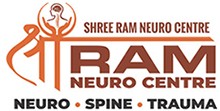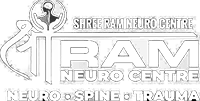Head Injury Treatment: Expert Advice from Dr. Deepashu
Introduction
Head injuries can be terrifying and have serious implications for a person’s well-being. Whether it’s a mild concussion or a severe traumatic brain injury (TBI), proper treatment is crucial to ensure the best possible outcome. In this article, renowned neurosurgeon Dr. Deepashu explores various aspects of head injury treatment, offering his expertise and guidance to help those in need.
SEO Meta-Description: Seeking expert advice on head injury treatment? Look no further! Discover the insights of renowned neurosurgeon, Dr. Deepashu, and ensure the best care for your head injury.
Understanding Head Injuries
Before delving into treatment options, it’s important to understand the different types of head injuries. Head injuries can range from mild to severe, with symptoms varying accordingly. Some common types of head injuries include:
- Concussions: Often caused by a blow to the head, concussions can result in temporary loss of consciousness, memory problems, and dizziness.
- Skull Fractures: When the skull bone cracks or breaks, it can lead to severe complications, including brain damage.
- Hematomas: Blood clots that form outside or within the brain can put pressure on the delicate brain tissue, requiring immediate medical attention.
- Traumatic Brain Injuries (TBIs): These are the most severe head injuries and can result in long-term cognitive, physical, and emotional impairments.
Immediate Steps to Take
If you or someone you know has experienced a head injury, it’s essential to take immediate action. Follow these steps to ensure the best possible outcome:
- Seek Medical Help: Call emergency services or visit the nearest hospital without delay. Only a medical professional can accurately assess the severity of the injury and provide appropriate treatment.
- Rest and Observe: Stay still and avoid any physical strain. Rest is crucial for the brain to recover from the trauma. Observe symptoms closely and record any changes to report to the medical professional.
- Apply Ice Packs: To reduce swelling and alleviate pain, gently place ice packs or cold compresses on the affected area. Do not apply ice directly to the skin; instead, wrap it in a cloth or towel.
- Stay Awake: If advised by the medical professional, try to stay awake and avoid sleeping immediately after a head injury. This is particularly important if there has been a loss of consciousness.
Treatment Options and Recommendations
Head injury treatment varies depending on the severity and type of injury. Here are some common treatment approaches recommended by Dr. Deepashu:
Mild Concussion Treatment
For mild concussions, the following measures are typically advised:
- Rest: Allow the brain to recover fully by getting plenty of rest. Avoid physical and cognitive exertion, including activities that require intense concentration.
- Pain Management: Over-the-counter pain relievers, such as acetaminophen, may help alleviate headache and discomfort. However, consult a medical professional before taking any medication.
- Gradual Return to Activity: Once symptoms subside, gradually return to normal activities. Start with light exercises and gradually increase physical and cognitive exertion.
- Cognitive Rest: Limit screen time, avoid intense mental tasks, and give the brain ample time to heal.
Severe Head Injury Treatment
When it comes to severe head injuries, immediate medical intervention is critical. Treatment options may include:
- Surgery: In cases of skull fractures or hematomas, surgery may be necessary to repair the damage and alleviate pressure on the brain.
- Medications: Depending on the specific circumstances, medications may be prescribed to control seizures, reduce brain swelling, or prevent infection.
- Rehabilitation: Following surgery or initial treatment, rehabilitation is often required to regain lost motor and cognitive skills. This may involve physical therapy, occupational therapy, and speech therapy.
Prevention and Long-Term Care
While accidents are often unpredictable, taking certain precautions can significantly reduce the risk of head injuries. Here are a few essential preventive measures:
- Use Protective Gear: When engaging in high-risk activities such as sports or riding a bicycle, always wear appropriate protective gear, including helmets.
- Child Safety Measures: Ensure children are properly secured in car seats or seat belts to minimize the risk of head injuries during accidents.
- Fall Prevention: Make homes and workplaces safe by removing potential tripping or slipping hazards, securing rugs, and installing handrails on stairs.
Conclusion
When it comes to head injuries, proper treatment and care are paramount. Following immediate steps, seeking professional help, and adhering to prescribed treatment plans are crucial for a successful recovery. By taking preventive measures, we can minimize the occurrence of head injuries and safeguard our well-being. Remember, if you or someone you know is facing a head injury, consulting a qualified medical professional like Dr. Deepashu is always recommended for expert advice and personalized treatment.

